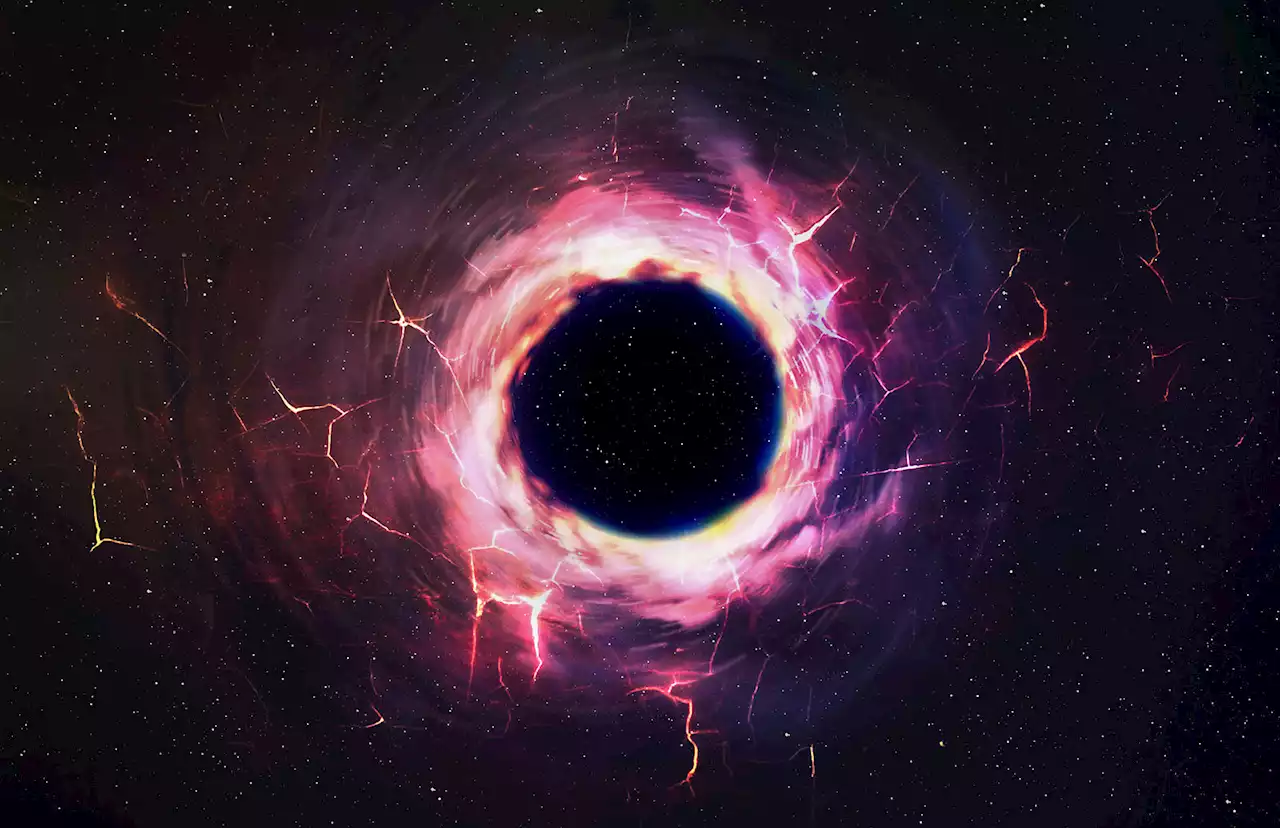Scientists created a fake event horizon using a man-made black hole in a lab and it could teach us more about these cosmic entities.
A group of researchers recently simulated the event horizon of a man-made black hole in a lab. The new analog could help us learn more about the elusive radiation that is believed to be emitted by real black holes out in space.captured images of black holes
, they are all grainy and lacking detail. That’s because the light of space literally bends around these void-like entities, making it hard to observe them. But, with this new man-made black hole, scientists could be able to get a closer look. The researchers were finally able to observe the equivalent of what we know as Hawking radiation, a group of particles born from the quantum fluctuations that are caused by a black hole when it breaks through spacetime. These observations from the man-made black hole could help resolve some tension between two working frameworks, the researchers say.The first framework is the general theory of relativity, which describes gravity’s behavior as a continuous field known as spacetime.
If we can do that, it could provide us with a deeper understanding of how the universe works. That, in and of itself, could also provide us with more details about how black holes work, which may even help scientists determine the. The effect of this man-made black hole produced a temperature rise that matches the theoretical expectations of a black hole system.
The fake event horizon even showed signs of glowing in the lab where the researchers created it. It’s an intriguing bit of research, to be sure. You can read more of the study in
United States Latest News, United States Headlines
Similar News:You can also read news stories similar to this one that we have collected from other news sources.
 Low Earth orbit: Seven significant spacecraft that lie in low Earth orbitFrom GPS to the venerable Hubble Space Telescope, low Earth orbit has proved to be a very useful piece of space real estate indeed.
Low Earth orbit: Seven significant spacecraft that lie in low Earth orbitFrom GPS to the venerable Hubble Space Telescope, low Earth orbit has proved to be a very useful piece of space real estate indeed.
Read more »
 Researchers engineer a river that can be turned on and offHow can you study nature's most elusive river elements? One University decided to build an artificial river to explore erosion and other factors affecting the body of water.
Researchers engineer a river that can be turned on and offHow can you study nature's most elusive river elements? One University decided to build an artificial river to explore erosion and other factors affecting the body of water.
Read more »
 U.S. job market little affected by pandemic, say researchersFor all the tumult and disruptions of the coronavirus pandemic, U.S. labor markets have come out on the other side not far from the strong conditions that prevailed before the crisis, a paper presented at a Boston Fed research conference said.
U.S. job market little affected by pandemic, say researchersFor all the tumult and disruptions of the coronavirus pandemic, U.S. labor markets have come out on the other side not far from the strong conditions that prevailed before the crisis, a paper presented at a Boston Fed research conference said.
Read more »
 James Webb Space Telescope helps researchers uncover early galaxies in 'new chapter in astronomy'International scientists are shedding light on two of the farthest galaxies seen to date. The early galaxies were captured in James Webb Space Telescope pictures.
James Webb Space Telescope helps researchers uncover early galaxies in 'new chapter in astronomy'International scientists are shedding light on two of the farthest galaxies seen to date. The early galaxies were captured in James Webb Space Telescope pictures.
Read more »
 Stanford researchers launch first study on long-COVID treatment with Pfizer's PaxlovidResearchers at Stanford University are launching a new study to see whether Pfizer's anti-viral drug Paxlovid, which is approved to treat COVID-19, might also be an effective cure for so-called 'long COVID' that causes suffering in patients long after their initial SARS-CoV2 infection.
Stanford researchers launch first study on long-COVID treatment with Pfizer's PaxlovidResearchers at Stanford University are launching a new study to see whether Pfizer's anti-viral drug Paxlovid, which is approved to treat COVID-19, might also be an effective cure for so-called 'long COVID' that causes suffering in patients long after their initial SARS-CoV2 infection.
Read more »
